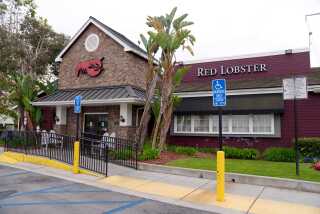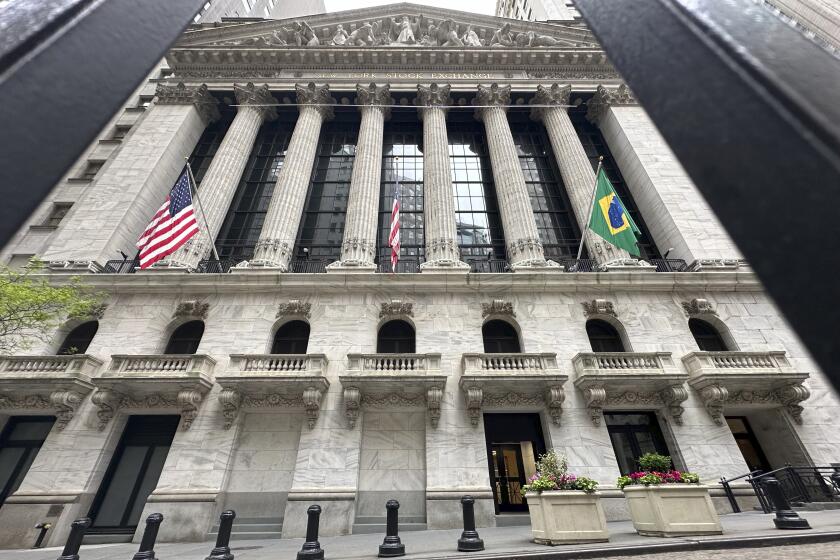Top CEOs Expect Sour 2003 U.S. Economy
Major U.S. companies say they’ll eliminate jobs next year and hold spending on new equipment flat with this year’s levels because they expect the economy to be anemic, according to a survey released Tuesday.
Almost two-thirds of the chief executives surveyed by the Business Roundtable in New York forecast that real gross domestic product will increase less than 2% in 2003, well below the average annual growth rate of 3.2% over the last decade.
“Our nation’s economic recovery has not been strong or sustained, and the Business Roundtable’s survey shows that CEOs do not expect the situation will improve significantly in 2003,” said John Dillon, chief executive of International Paper Co. and chairman of the Business Roundtable.
The survey will be used as ammunition in the group’s efforts to shape economic policy in 2003.
The Business Roundtable includes CEOs of corporations with a combined $3.7 trillion in revenue and a total work force of more than 10 million.
About 120 of the Roundtable’s 150 members responded to the survey, Dillon said.
Sixty percent of the chief executives surveyed say they expect to cut jobs next year, 28% plan to hold their work force steady and 11% said they will add workers.
“One of the few levers that are available to business today is to continue to cut employment and downsize to match the incoming order rates,” Dillon said. “Demand for our products continues to be weak.”
Fifty-seven percent said they will spend in 2003 the same amount on new machinery, software and other equipment as they will this year. Almost one in four plan to reduce capital spending, the survey found.
“Our companies are in the business of creating jobs and contributing to economic growth, but we have grave concerns about our ability to do these things in this fragile economic environment,” Dillon said.
Yet 71% of the CEOs said they expect sales to rise next year, while 19% said sales will be little changed and 9% said they expect sales to fall.
“Even if we get an increase in sales, there’s very little ability to raise prices,” Dillon said.
The group will probably ask lawmakers to take new measures to stimulate the economy, said Dillon in a conference call. “We will be sharing these results with the White House and Congress,” he said. “We want to be sure they have enough information to help guide their economic policy agenda to restore consumer confidence and spur business spending.”
Treasury Secretary Paul H. O’Neill took issue with some of the survey’s findings. The U.S. doesn’t need an economy-wide program of tax cuts and more government spending to boost growth because weakness is confined to some parts of the economy, O’Neill said at a Fortune magazine-sponsored forum Tuesday.
The economy has grown at an average 3% annual rate during the first three quarters of this year. “I wonder what it is that causes this mood at the moment that we’re going down?” said O’Neill. “The objective data don’t seem to support the idea that we’re going down.”
Also Tuesday, speeches by several Federal Reserve policymakers indicated that the central bank believes the economy is on course for a gradual recovery and business investment may be strengthening.
A half-point reduction last week in the Fed’s benchmark short-term interest rate, to 1.25%, will help the economy grow between 3% and 4% in 2003, said Anthony Santomero, president of the Federal Reserve Bank of Philadelphia, in a speech in Delaware.
“There is some softness at present, but recent monetary policy action should prove to be effective in returning the economic recovery to a more acceptable pace,” said Santomero, a voting member of the Fed’s policymaking committee.
He said the uncertainties weighing on the economy will be resolved and he expects to see “solid, if unspectacular growth” in consumer spending in line with growth in household incomes.
Reuters was used in compiling this report.






